4 Best Magnifying Glasses for macular degeneration
Best Magnifying Glasses for macular degeneration:
Magnifying glasses are simple optical tools that can be super handy and helpful for those with vision impairments or anyone needing to see small details more clearly such as reading small prints such as medication label, food instruction, food nutrition facts or any spot reading.
Let’s dive into the different types of magnifiers, understand what magnification means, and discover why top brands are worth your attention.
4 Types Magnifying Glasses (Magnifiers) and Their Uses
1. Handheld Magnifying Glasses (Magnifiers)
- Regular Handheld Magnifiers
- What They Are: Portable magnifiers you hold in your hand. Most common type.
- Best For: Best magnifier for vision impaired people for Reading short letters, food or medication labels, inspecting small objects, and hobbies like stamp collecting and embroidery.
- Top Brands: Optelec, Eschenbach, Carson
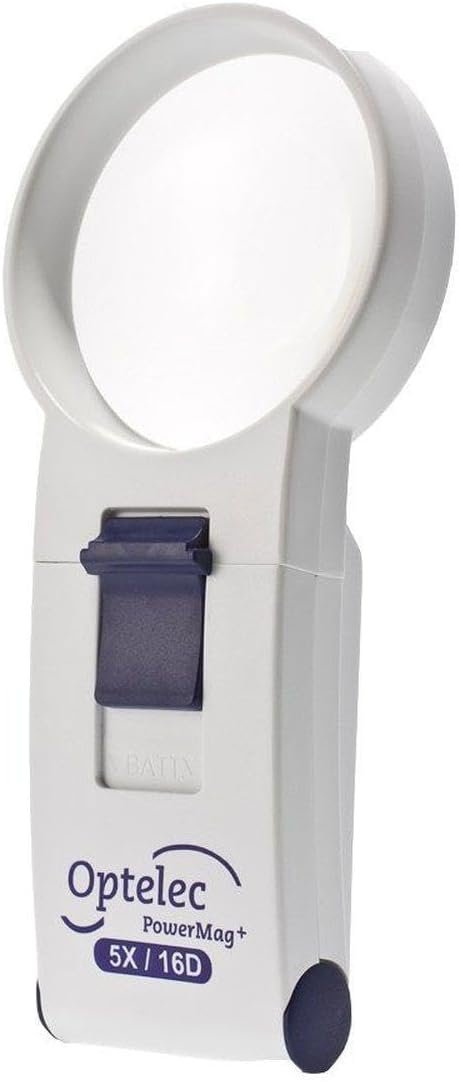
Optelec
Magnification level: 5X
Focal point: 6cm
High quality lens
LED light
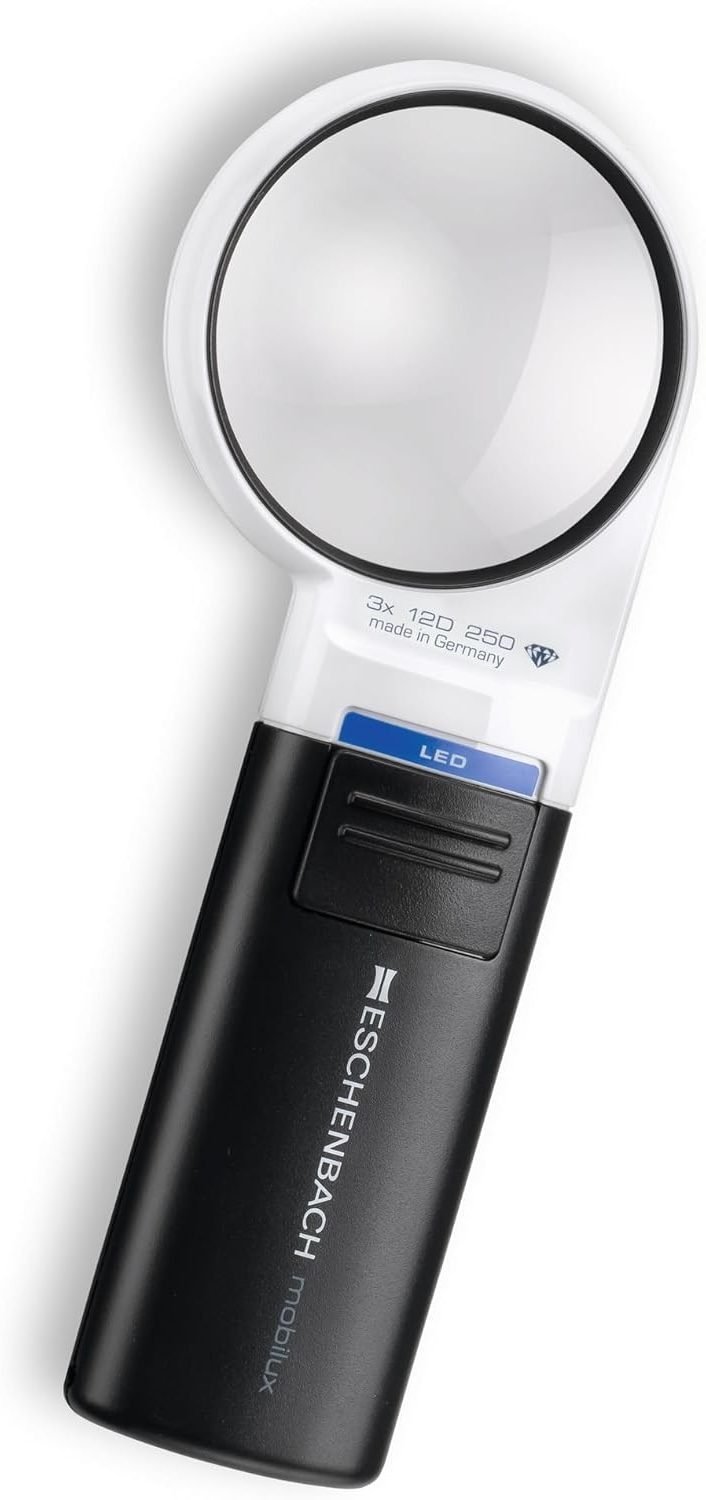
Eschenbach
Magnification level: 3X
High quality round lens
LED light
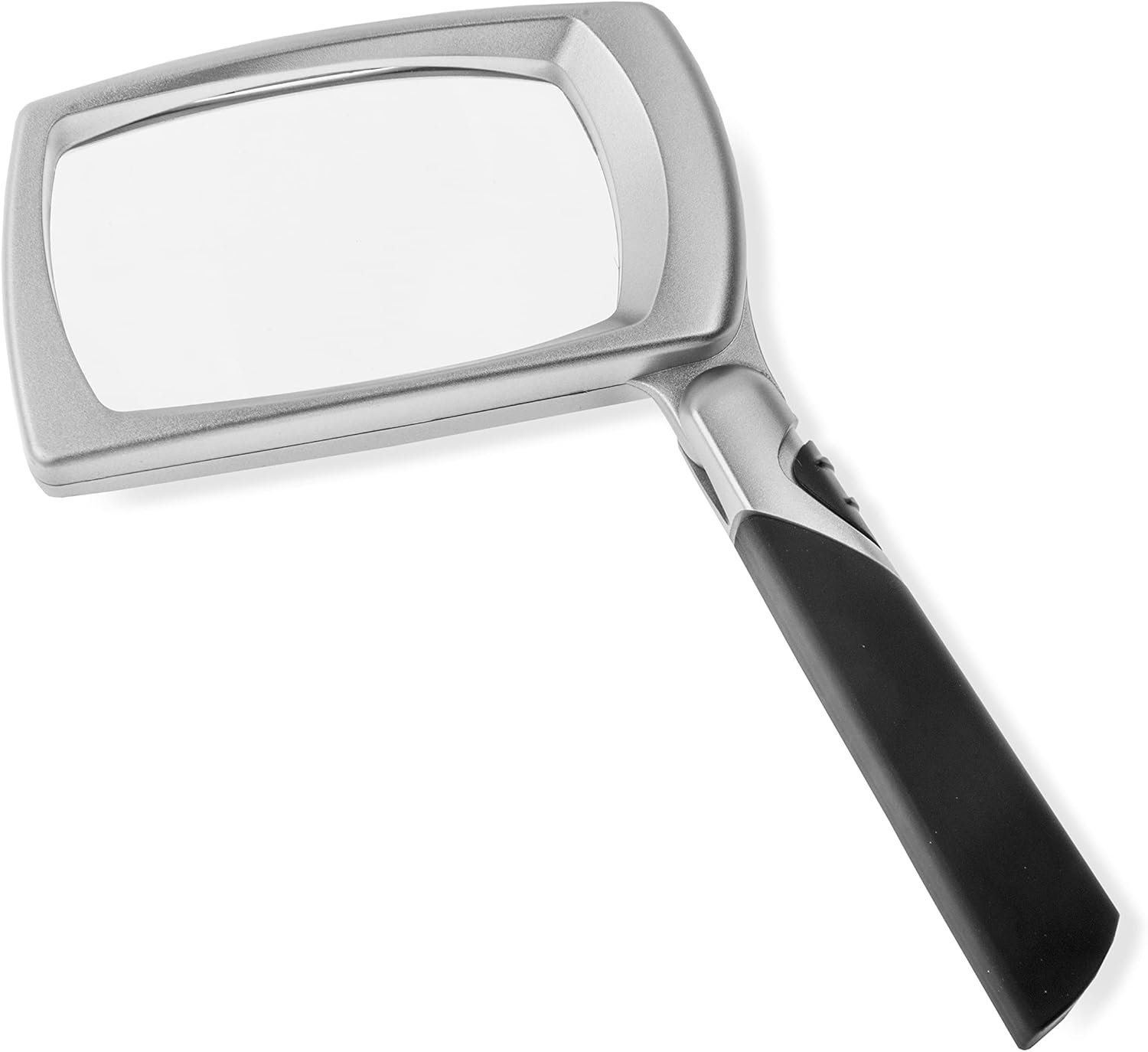
Carson
Magnification level:2.5X
Focal point :10-15cm
Light weight
Foldable
Handheld magnifiers require you to hold the lens at a specific distance from the page to achieve the best image quality. Too close or too far, and the image will be distorted.
For example, a 4X (16D) magnifying glass should be held about 6 cm (2.5 inches) from the paper. Generally, the higher the magnification, the closer you need to hold it to the page.
Also, remember, the closer you get to the lens, the larger the visual field, allowing you to see more words at a time. Always maintain a good ergonomic position.
- Pocket Magnifying glass
- This is another type of handheld magnifier that is more portable and can easily fit in your pocket or purse.
- What They Are: Compact magnifiers that fit easily in your pocket.
- Best For: On-the-go use, like reading menus or labels.
- In the picture below you, it is a 4X magnifier which could be a proper option for someone with mild to moderate vision impairment because of various macular (central vision) disease such as macular degeneration.
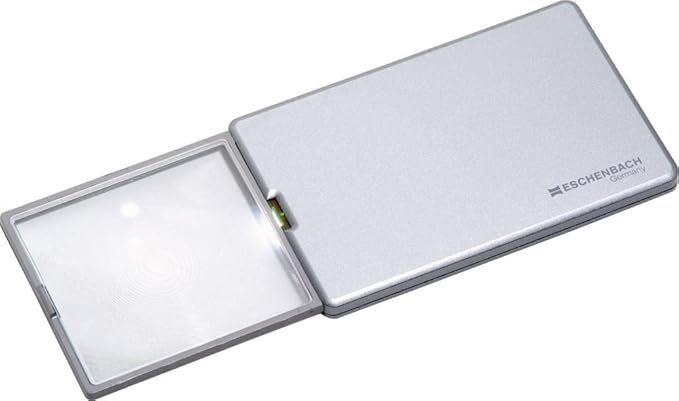
Eschenbach Easy Pocket
Light weight, only 30 Grams
High Quality Aspheric lens
SMD LED
2. Stand Magnifying glass for macular degeneration

Stand magnifiers don’t require you to worry about the distance from the page. Simply place it over the paper and move it around. The stand keeps the lens at the correct distance from the text.
- What They Are: stand magnifiers eliminate the need to maintain a steady hand or worry about the optimal distance from the page. You can simply place the magnifier over the document and glide it across to read with ease. The built-in stand ensures that the lens is always at the perfect distance from the text, providing a consistent, clear image.
- Best For: They are specifically designed for tasks that require extended focus, such as reading novels, studying maps. With a stand magnifier, you can enjoy reading experience, allowing you to relax and read comfortably for longer durations
- Top Brands: Optelec is one of the top brands in the market, known for its durable construction and crystal-clear optics.
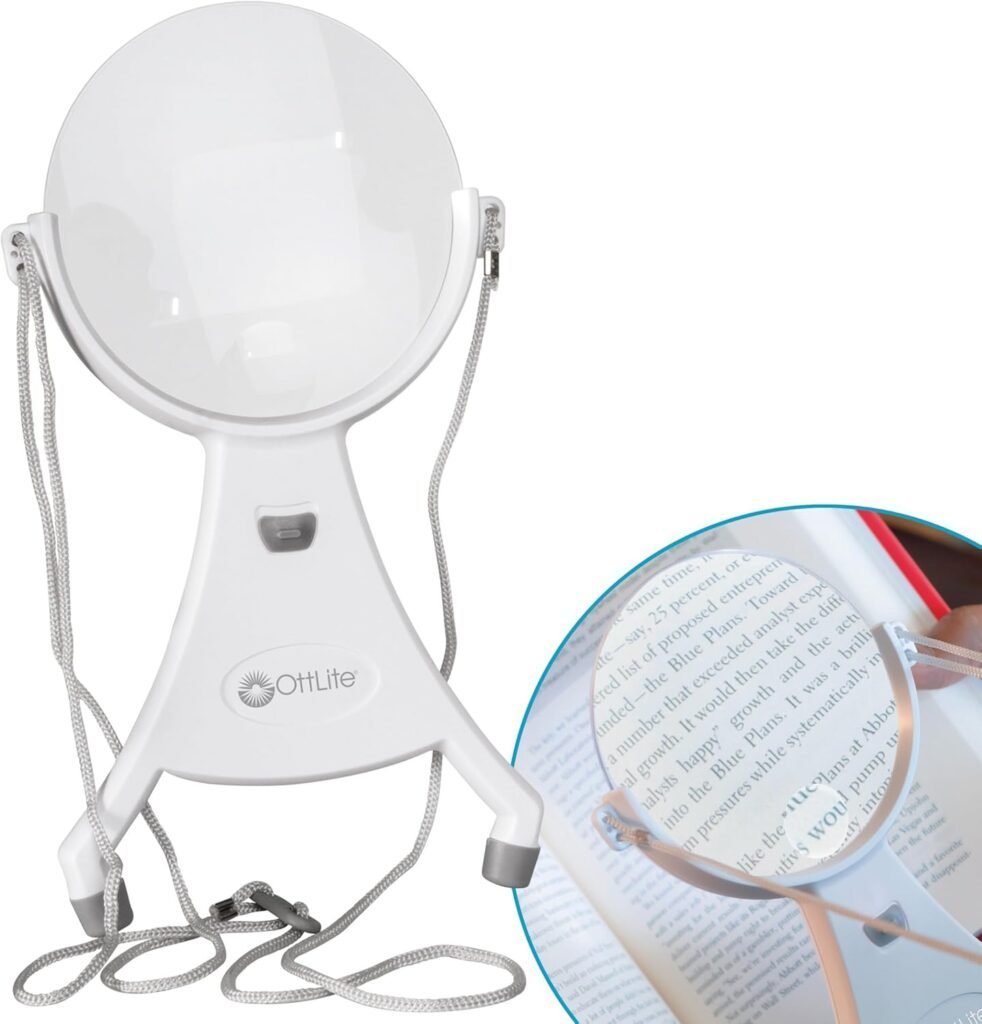
3. Hands-Free Magnifying Glasse
Around-the-Neck Magnifiers
Magnifiers that hang around your neck for hands-free use.
Best for: Personal care like nail clipping, and hand craft activities like Knitting, Crocheting, and sewing
Top Brands: Ottlite
Floor light or task light with magnifying lens:
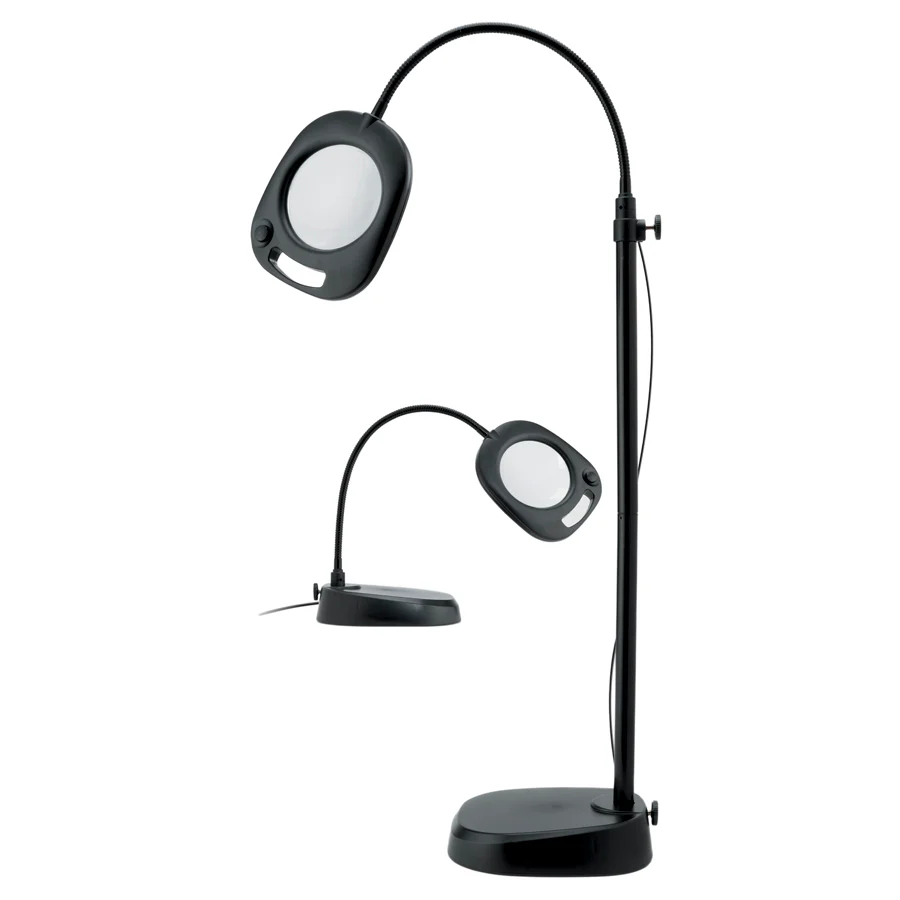
- What They Are: Brighten your space with floor lamp featuring 21 Naturalight™ LEDs and a 5″ 2X magnifying lens. Its flexible gooseneck allows precise lighting, while the removable pole lets you use it as a desk or table lamp.
- Best For: Activities needing both hands, like knitting, sewing, clipping, or polishing nails. They typically have 2X magnification and a spot lens with 4X for smaller details.
- Top Brands: Daylight, Ottlite
Why Are Magnifying Glass Lenses Small?
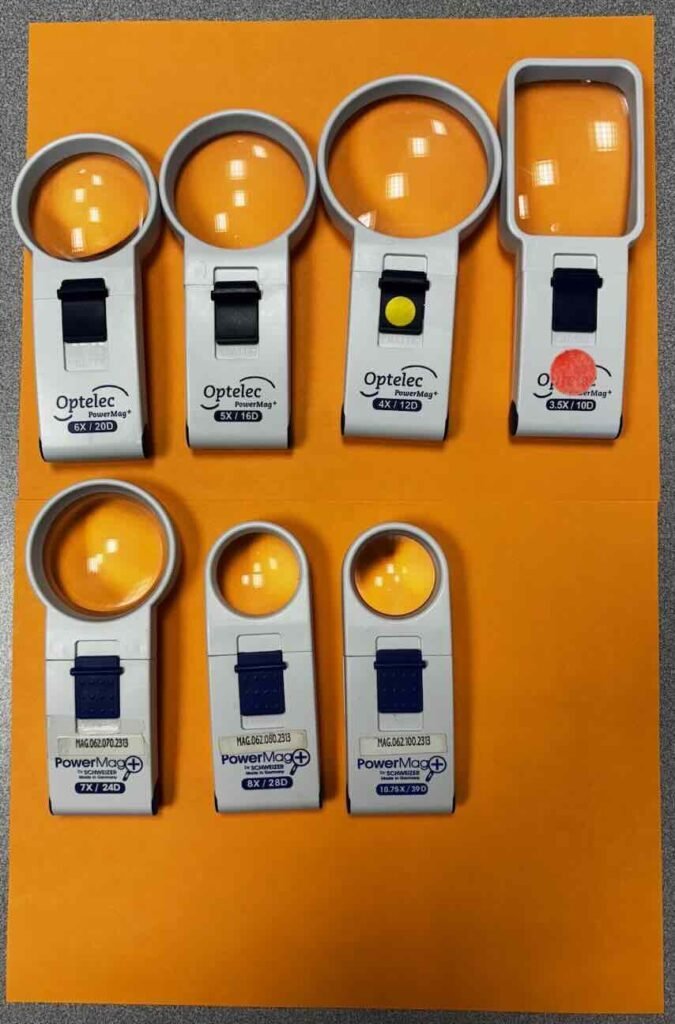
Higher magnification means smaller lenses due to optical limitations. Larger lenses with high magnification from random brands often result in distortions and unclear edges.
What Is Magnification (X) and Diopter (D)?
- Magnification: Indicates how much bigger an object looks compared to its actual size. For example, 2X magnification makes things look twice as large.
- Diopter: Measures the lens’s optical power. Higher diopter numbers mean stronger magnifying power. For instance, a 5-diopter lens has about 2.25X magnification.
Why Lighting and High-Quality Lenses Matter:
Lighting
Good lighting is crucial for better vision, especially for seniors who need more light. A 65-year-old person needs 10 times more light compared to a 10-year-old. Ensure adequate lighting without glare to avoid eye strain. Magnifiers with built-in LED lights (like those from Optelec and Eschenbach) provide even illumination, reducing eye strain and improving clarity.
High-Quality Lenses
Clear, high-quality lenses are essential for distortion-free viewing. Brands like Optelec and Eschenbach use top-notch materials to ensure sharp, clear images.
Relationship Between Visual Acuity and Magnification
Visual acuity (VA) and contrast sensitivity are crucial for determining the clarity of vision. As VA decreases, the required magnification (X) increases to compensate for the loss in visual clarity. For instance, a person with 20/100 VA might need a magnification of 2.5X to see clearly.
Categories of Visual Acuity and Recommended Magnification:
Mild Vision Loss (20/50 to 20/70): Lower magnification (1.5X to 2X) is typically sufficient.
Moderate to Severe Vision Loss (20/80 to 20/200): Higher magnification (2.5X to 6X) is often required.
Legally Blind (VA of 20/200 or worse) and Functionally Blind: Specialized high-power magnifiers (6X and above) may be necessary. For VA < 20/200, digital magnifiers (CCTVs) or auditory devices are often provided.
Note that VA alone is not sufficient to determine a person’s reading performance. Other important factors, such as sensitivity to contrast, lighting conditions, literacy, and mental conditions, can affect performance. However, in general, VA is a good indicator for determining the required level of magnification (X).
Who Benefits from Magnifiers?
Magnifiers are valuable tools for anyone who needs to read small print or perform detailed work. They can also be highly effective aids for individuals with vision impairments, such as:
- Age-Related Macular Degeneration (ARMD)
- Glaucoma
- Retinitis Pigmentosa (often requiring lower magnification due to limited visual field)
- Diabetic Retinopathy
- Cataracts
- Other retinal conditions affecting visual acuity
Debunking the High Magnification Myth
Many believe that higher magnification always leads to better clarity and detail. However, this is a common misconception when it comes to magnifiers. While it’s natural to think that greater magnification provides superior results, the reality is more nuanced. High magnification often narrows the field of view and can distort the image, making it harder to use effectively for prolonged tasks. The key is finding the right balance between magnification power and usability to suit individual needs.
Many products claim absurdly high magnification levels like 20X, 30X, or 40X, which are unrealistic for handheld magnifiers. These claims often result in serious distortion and impracticality.
Handheld magnifiers realistically offer up to 10X magnification for clear and practical use.
Estimate Your Magnification Needs
The right magnification level depends on your Visual Acuity (VA) and the task. For example, someone with 20/60 vision may need less magnification than someone with 20/200 vision.
Generally, 2X-5X magnification works well for most reading tasks, while higher magnification might be needed for detailed work. Portable and desktop digital magnifiers (CCTVs) are available for those needing stronger magnification.
Top magnifier brands
When choosing a magnifier, opt for trusted names like Optelec, Magno, and Eschenbach. They are known for quality and reliability. You can find these top-rated products on Amazon through affiliate links, ensuring you get the best value and support reputable brands.
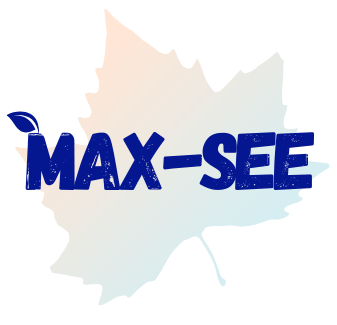

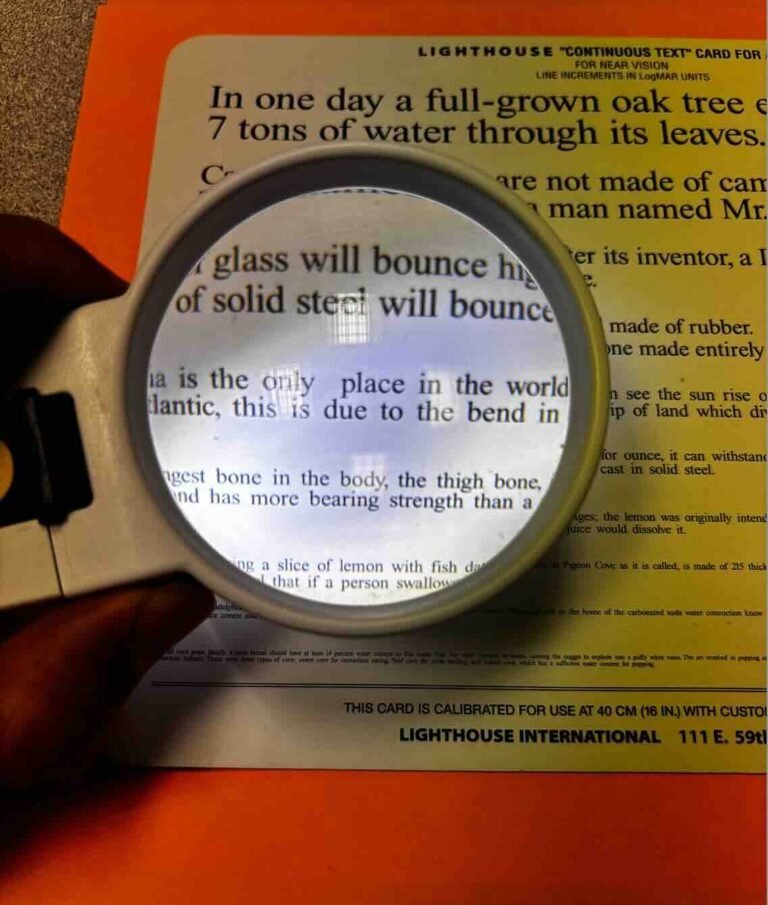

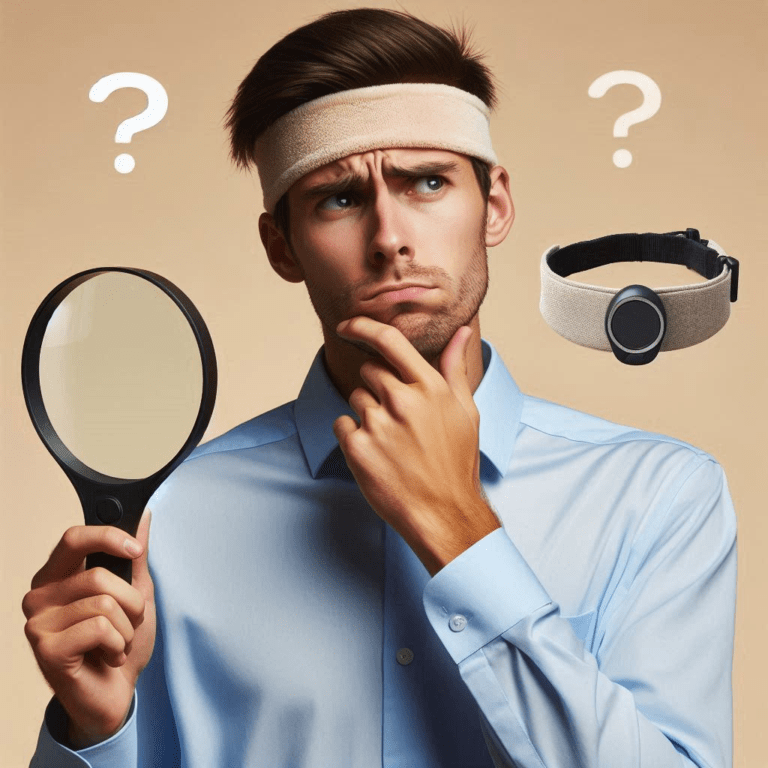
3 Comments